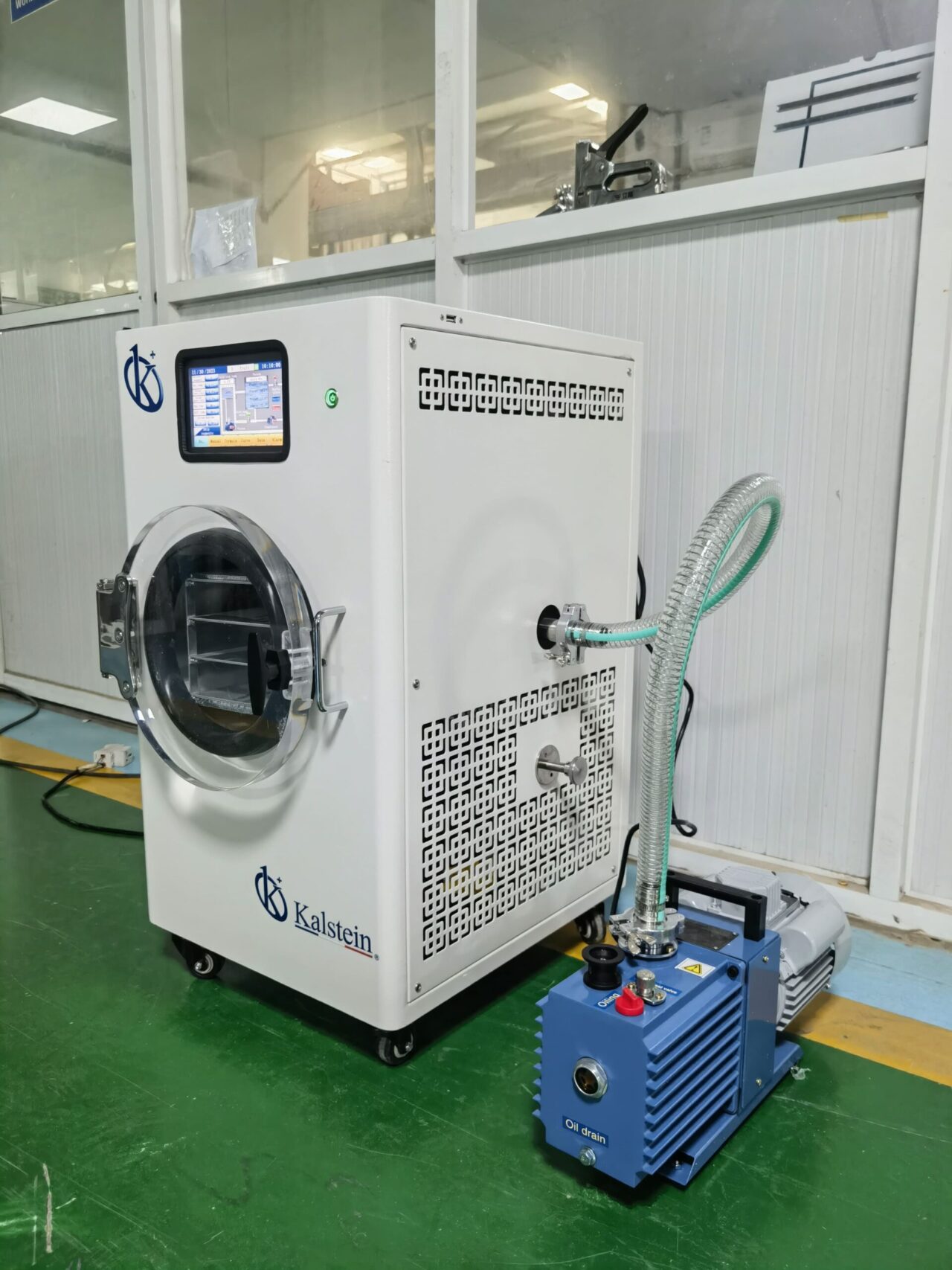Lyophilization represents an essential method in the preservation of clinical samples and pharmaceutical products. This innovative process ensures the stability and efficacy of various biocomponents by removing water through sublimation. When discussing advanced laboratory equipment, high-tech lyophilizers stand out for their ability to guarantee the quality and safety of samples.
In this scientific article, we will explore the importance of these devices, their applications in science and biomedicine, and the crucial factors to consider when making a purchase. Using keywords such as manufacturer Kalstein, price, purchase, and sale, this text will also provide guidance for acquiring these advanced instruments. https://kalstein.it/category-product/laboratory-line/freeze-dryer/
Importance of Lyophilizers in the Modern Laboratory
In the scientific field, the preservation of clinical and pharmaceutical samples is a priority challenge. Lyophilization, also known as freeze-drying, differs from other preservation techniques by removing water from a sample. This process preserves the physical and chemical characteristics of biological materials, medications, and vaccines, ensuring their long-term integrity and efficacy.
High-tech lyophilizers are noted for their precision and control capabilities, allowing essential variables such as temperature, pressure, and time to be adjusted. This level of control is crucial for the preservation of highly sensitive samples and pharmaceutical products that require storage under stringent conditions. Moreover, lyophilization minimizes the risk of contamination and degradation, critical factors in biomedical research and drug production.
Biomedical and Pharmaceutical Applications of Lyophilization
Lyophilization is not only indispensable for the preservation of clinical samples but also a key technique in the production of pharmaceutical products. Many vaccines and biological drugs, such as monoclonal antibodies, rely on lyophilization to maintain their stability during transport and storage. This technique is also fundamental in preparing samples for analysis in clinical and research studies.
High-tech lyophilizers are used in the production of biocompatible materials and in the research of new drugs. For example, tissue and cell samples, which are extremely sensitive to environmental changes, can be preserved for extended periods without losing viability. Similarly, researchers use lyophilization to study the structure of proteins and other complex molecules, facilitating significant advances in medical science. If you want to know the catalog of high-end products we have for you at KALSTEIN, visit us at https://kalstein.it/
Key Features of High-Tech Lyophilizers
When considering the purchase of an advanced lyophilizer, it is essential to evaluate several features that affect both the performance of the equipment and the quality of the processed samples. Among these features, precise control of temperature and pressure is crucial. High-end lyophilizers, such as those offered by manufacturers like Kalstein, allow detailed adjustment of these variables, ensuring a consistent and controlled lyophilization process.
Another highlighted aspect is the customization capability of the lyophilization cycle. This factor is crucial to adapt to the different types of samples and products that may be processed. Additionally, modern equipment is equipped with real-time monitoring systems and advanced software that facilitates control and data collection, thus optimizing the efficiency of the process.
Trends and Future of Lyophilization in Science and Medicine
The future of lyophilization in the scientific and medical fields is marked by increasingly advanced and automated technologies. The integration of robotic systems and artificial intelligence promises to streamline and perfect lyophilization processes, making the preservation of samples and pharmaceutical production more efficient. Moreover, new innovations are expected to further reduce energy consumption and improve the sustainability of these processes.
The role of manufacturers like Kalstein will be crucial in advancing and democratizing these new technologies. As more accessible and efficient equipment is developed, lyophilization can extend its reach to a wider variety of applications, from biomedical research to the food industry, thus optimizing the preservation and quality of countless products.
Lyophilization is an invaluable tool in the preservation of clinical samples and pharmaceutical products. High-tech lyophilizers, such as those offered by notable manufacturers like Kalstein, represent an investment in quality and efficiency. By considering factors such as price, equipment customization, and technical support, researchers and healthcare professionals can ensure that their samples and products are preserved with the utmost integrity.
Looking to the future, technological innovations will continue to improve these devices, expanding their capacity and application across various industries. Therefore, staying informed and adopting these advanced technologies will be key for those looking to optimize their processes and outcomes in the fields of science and medicine.

